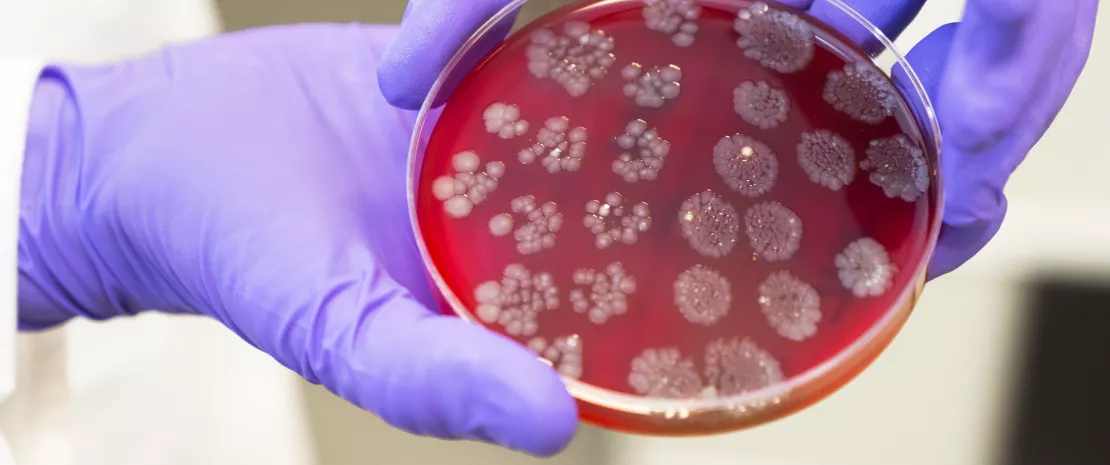Fecal microbiota transplant: mixed results
Since gut dysbiosis seems to be associated to IBD, microbiota modulation could be a new avenue for relevant therapeutic care. Two possible options: fecal microbiota transplant or use of probiotics.
Lay public section
Find here your dedicated section
Sources
This article is based on scientific information
Sections

Donor tests for faecal microbiota transplant. Researcher holding a petri dish culture from sample testing of a donor stool.
About this article
Fecal microbiota transplant allows patients to receive approximatively 1011 bacteria per gram of stool, but also fungi, viruses and archaea. Its objective is to correct gut dysbiosis. The number of necessary attempts and results vary according to the individuals and their pathology, and the protocol requires seamless controls.13
Gut microbiota modulation is a potential treatment for IBD. In practice, this strategy could be carried out through fecal microbiota transplant (FMT). The fecal matter comes from one or several healthy donors and is then transplanted into the distal gastrointestinal tract of the patient thanks to a nasogastric tube, during a colonoscopic enema, or more recently through oral capsules. This protocol is already being successfully used in case of recurrent Clostridium difficile infections. But what about IBD?
Ulcerative Colitis
Although safety conditions of the first tests were satisfying and the therapy led to partial or total remission in some patients with ulcerative colitis (UC), other attempts were more controversial.14 The donor’s fecal composition quality, the number of transplants and early therapeutic care, could modulate the chances of success and appear as a post-hoc explanation of heterogeneity of results.
Crohn's disease (CD)
Studies conducted on Crohn’s disease (CD), although fewer in number, produced either positive (clinical and endoscopic remission) or neutral results.In the only study that did not show a significant disease reduction, patients still reported an improvement in their quality of life.14 To confirm the clinical efficacy of fecal transplant in Crohn’s disease, additional studies are still necessary.
Many pending issues
Whatever the disease, several questions remain unanswered regarding: FMT engraftment, which could require several fecal transplants; the quality of the transplanted microbiota often obtained from donors living in countries where IBD prevalence rate is high; the restoration of microbiota altered functions after the transplant (for instance, production of protective short-chain fatty acids such as butyrate); and of course, the role of inflammation, either as a cause or consequence of dysbiosis.14





